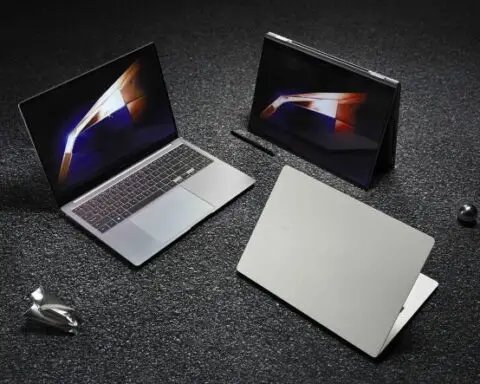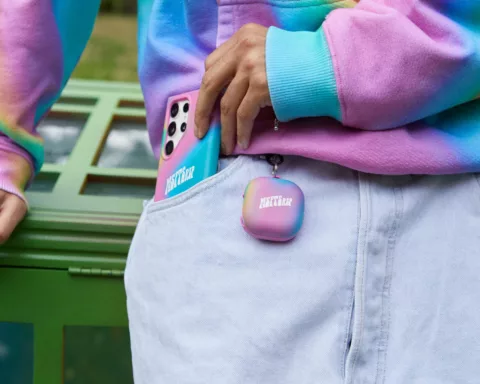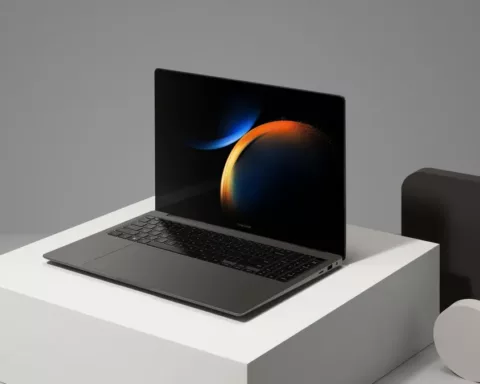Covey Denton is a science, technology, engineering, and mathematics (STEM) specialty teacher at the Sallie B. Howard School of Arts and Science in rural Wilson, North Carolina, located forty miles east of Raleigh. She’s spent the past two years of her eight-year career with the public charter school that serves more than 1,000 students in grades K-11. The diverse student body is 96.7% economically disadvantaged and, as Covey puts it, “we’re offering a holistic education to produce thinkers of the heart and citizens of the world.”
Thinkers of the heart are exactly what Covey and her fellow educators are developing. The students have participated twice in Samsung Solve for Tomorrow, the rigorous nationwide competition that challenges public school students to showcase how STEM can be applied to help improve their community. Both times, they went on to become North Carolina State Finalists with projects tackling roadway flooding and childhood drowning and hypoxia.
| Teacher | Covey Denton, STEM Specialty Teacher |
| School | Sallie B. Howard School of Arts and Science |
| Location | Wilson, North Carolina |
| Samsung Solve for Tomorrow Stats | 2019-20 Samsung Solve for Tomorrow State Finalist 2020-21 Samsung Solve for Tomorrow State Finalist Samsung Solve for Tomorrow Teacher Academy Summer 2021 Cohort 2021-22 Samsung Solve for Tomorrow competitor |
To further cultivate her students’ STEM thinking for the new 2021-2022 school year, Covey signed up for Samsung Solve for Tomorrow Teacher Academy, a weeklong professional development practicum designed to build and sustain a culture of STEM teaching and learning. The theme for the third annual Teacher Academy was sustainability – and one of the sessions focused on electronic waste (e-waste).

“I was unaware of the magnitude of the e-waste problem. Being in a rural area, our community focuses on fertilizer and pig farm waste and runoff,” said Covey. “When my son heard that the Teacher Academy was taking the cohort on a virtual field trip to a recycling facility, he along with my two daughters wanted to join. They were shocked by the staggering amount of e-waste created each year and it propelled them to take action!”
RECOMMENDED NEWS
According to the Waste Electrical and Electronic Equipment Forum, we’re expected to generate total 57.4 million tons of e-waste in 2021, worldwide. That’s an additional two million tons on last year. And at the present rate of increase, the United Nations predicts global e-waste will hit 74 million tons per year by 2030. Immediately after the recycling facility tour, 15-year-old Elijah Denton, 13-year-old Lydia Denton, and 11-year-old Bethany Denton told their mom, “We’ve got to do something to fix e-waste. Maybe we can’t fix the whole problem, but I think we can make a small difference.”

It was Elijah’s idea to narrow the scope of their e-waste solution to gaming systems. The young gamer thought of how he and his sisters can do their part to lessen the local environmental impact by refurbishing pre-owned gaming systems handheld gaming systems, tablets, games, and controllers; reusing parts; and donating them. Thus, ReGame, Inc. – a non-profit that gives new life to old gaming devices – was born.
The tenth grader, eighth grader, and sixth grader worked furiously to start the non-profit with the help of an area lawyer. Together, they designed a logo and developed a website to promote their new venture. They’ve also been busy driving awareness about the harmful effects of e-waste via live Twitch streams and other social channels. Both their local community and the gaming community have been extremely supportive.
The Denton family works on repairing old gaming systems before donating them to other organizations.
ReGame officially kicked off on November 6th with the hopes of capturing unwanted gaming devices as new ones get purchased and gifted this holiday season. The Denton trio has acquired 20 systems and more than 50 games to date, and they’ve learned to clean, test, and fix the systems on their own by watching YouTube tutorials. (They’re also looking into advancing gaming accessibility by building adaptive controllers!) Once ready, the gaming devices will be donated to charities, group homes, foster care facilities and individual foster care families, retirement homes and senior centers, and children’s hospitals free of charge. Among the organizations the Dentons have already reached out to are Ronald McDonald House Charities of the Carolinas and Baptist Children’s Homes of North Carolina.
“Whether it’s a classroom conflict or the climate crisis, I ask my children and my students, ‘What can we do to make it better tomorrow than it is today?’ That’s why STEM is so important. We identify the problem and devise a plan for solving it by reframing it, changing our behavior related to it, or even inventing something to resolve it.”






